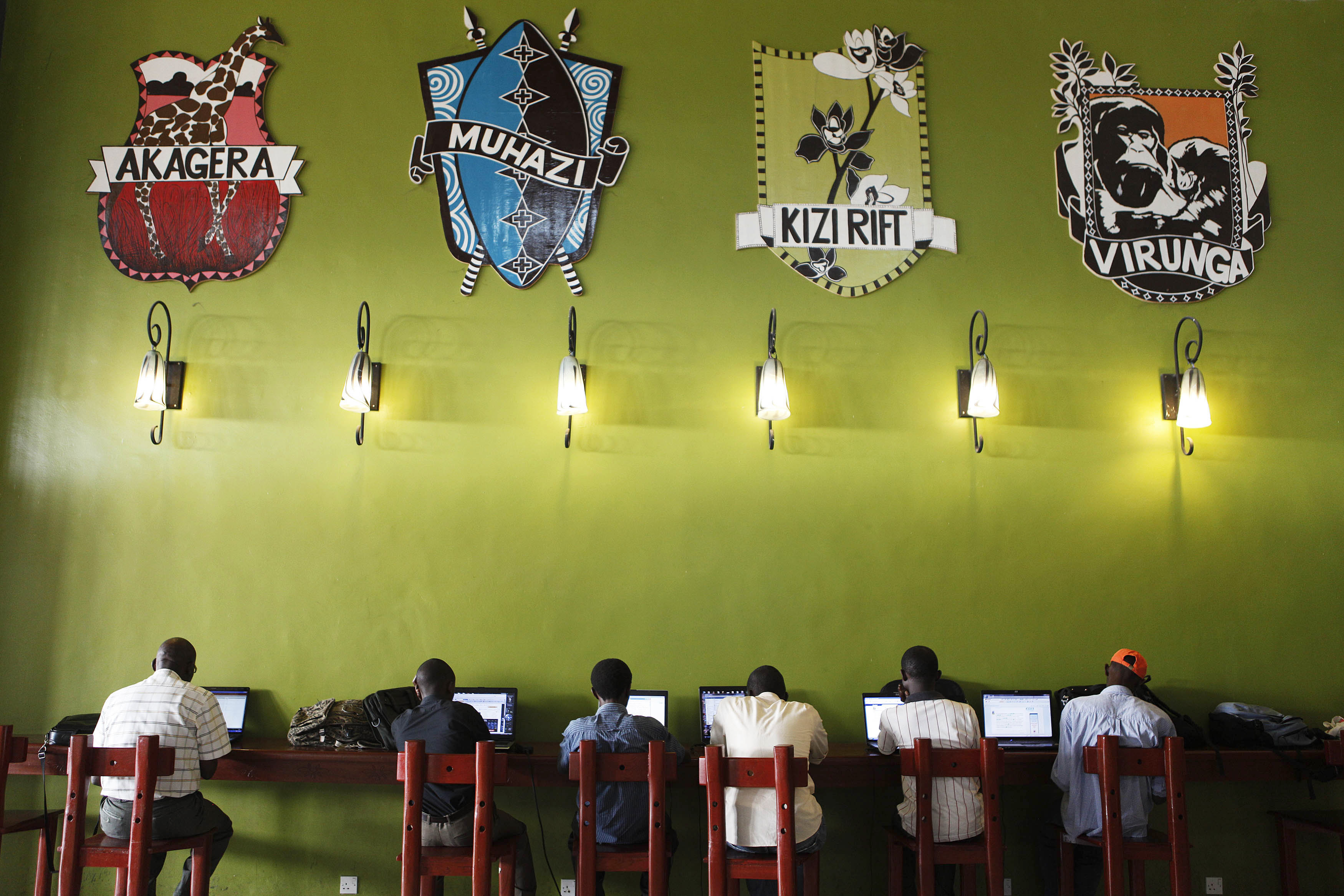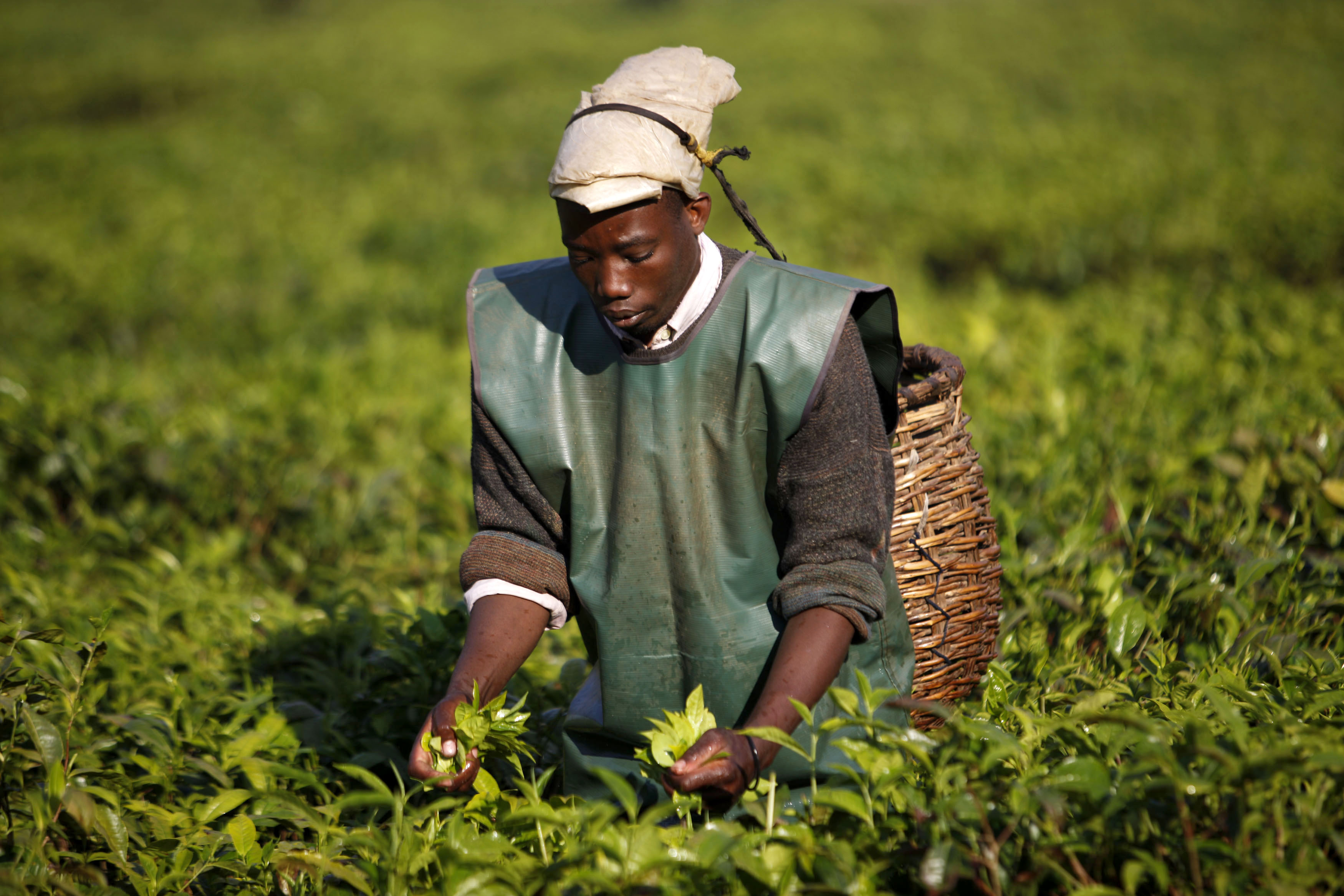Smoothing Rwanda’s rocky road to reconciliation

Eighteen years after one of the bloodiest genocides in history, the restitution of stolen goods remains a source of conflict in Rwanda. Swiss-backed organisations are encouraging torturers and victims to meet and make up.
Excitement spreads through the small village of Cyendajuru, on top of one of the countless hills in south-western Rwanda. In a few hours, the local fete will take place, marking the 25th anniversary of the foundation of the Rwandan Patriotic Front, the political party that has ruled the country since the end of the genocide in 1994.
While a handful of men get to work assembling a rudimentary skeleton for a tent, another gathering is ready to begin in a neighbouring town hall.
At the call of the Association Modeste et Innocent (AMI), sponsored by the non-governmental organisation Eirene Suisse, 40 or so survivors and former prisoners convicted of genocide meet every week to try and settle disputes peacefully.
Officially, gacacas – tribunals set up to try almost two millions Hutus accused of taking part in the massacre of almost 800,000 Tutsis and moderate Hutus – delivered their verdicts on June 18 this year.
The aim of these courts was not only national catharsis, but also to empty prisons by reducing the sentences of those who confessed their crimes.
But for many survivors, seeing their torturers back in the community is unbearable.
Sentenced for pillaging or destroying their victims’ belongings, these ex-convicts often don’t have the means to repair the harm they caused – an insoluble problem that could potentially trigger further violence and hatred.

More
Rwanda, an African Singapore?
Social therapy
“When we started setting up reconciliation groups, survivors and former inmates would stand on different sides of the room and refuse to talk to each other,” David Bazirankende from AMI told swissinfo.ch.
Two years later, the atmosphere has changed radically. Immaculée Mukankundiye, 56, is the first to speak; the others listen solemnly.
“I never imagined I’d be able to get close to the people who tortured my family. Thanks to these group meetings, we’ve established a friendly relationship,” she said.
AMI’s methods are based on social therapy, overcoming prejudices, verbalising repressed emotions and dealing with stress using breathing exercises.
Resilience, the ability to bounce back – “peace of heart”, as they say in Rwanda – is a core element of reconciliation. But reparations and the restitution of belongings stolen during the genocide are also central to the process.
For the Rwandan state, the problem has been settled by the gacacas, but in reality, numerous repayment agreements cannot be implemented.
“Conflicts linked to the restitution of pillaged goods are accentuated by the very precarious situation of rural zones,” said Jérôme Strobel from Eirene Suisse.
Of the 605 cases concerning the restitution of goods in this region where almost 5,000 people live, 154 have yet to be carried out, according to community leader Athanasie Mukangoga.
With AMI’s help, solutions are sought on a case-by-case basis. Thanks to small monthly payments made by the group’s members, Jativa Muamzabamdora has been able to return the goods stolen by her husband to three villagers.
Progress
Often farming activities are organised on the land of one of the victims, allowing debts to be repaid more quickly.
“At the end of a day’s work, we share beer and food. Confidence is restored,” said Bertilde Mukanyandwi, happy having been able to finally give back to one of the group’s members the trees which she had stolen during the genocide.
“These communal activities also enable fear of hoes and machetes to be dispelled. These were used [to kill people] during the genocide, but they are once again simple farming tools,” Bazirankende said.
When large sums are at stake, AMI encourages the victims to show leniency and reach an agreement on the method of repayment. It also urges the guilty parties to repent sincerely.
But it’s not always easy. “I’m still owed 35 million Rwandan francs (around SFr60,000) for the pillaging of my shop, the destruction of my house and the massacre of my cows,” complained Générose Mukarwego.
“The people who did it don’t come from here and refuse to pay what they owe.”
The debate comes to life, but it is punctuated by bursts of laughter and smiles which leave no doubt about the progress already made by the group.
“It’s beyond all our expectations,” Bazirankende admitted. “After the genocide, no one thought Rwandans could live together again one day.”
Rwanda covers an area of about two-thirds that of Switzerland and has a population of more than ten million.
In 1994, more than 800,000 people were killed in an ethnic genocide according to the United Nations. Other sources put the figure higher.
As Rwanda’s strongman since the end of the genocide in 1994, Paul Kagame, formerly exiled in Uganda, won the presidential election shortly afterwards with 95% of the votes.
Rwanda is a member of the International Organisation of Francophonie and the Commonwealth.
Switzerland has been active in Rwanda since 1963, shortly after the country’s independence the year before. Until the 1994 genocide, Rwanda was a priority country for the Swiss Agency for Development and Cooperation (SDC).
From 1994 to 1997, Switzerland provided Rwanda with humanitarian aid. From 1998 onwards, cooperation was resumed with the country as part of a programme in favour of the whole Great Lakes region.
Switzerland spends about SFr30 million ($32.2 million) annually for humanitarian aid and development in this programme.
Its two main priority areas are peace consolidation and good governance as well as health. The agency also finances a media programme for the region.
(Source: SDC)
(Translated from French by Thomas Stephens)

In compliance with the JTI standards
More: SWI swissinfo.ch certified by the Journalism Trust Initiative









You can find an overview of ongoing debates with our journalists here . Please join us!
If you want to start a conversation about a topic raised in this article or want to report factual errors, email us at english@swissinfo.ch.